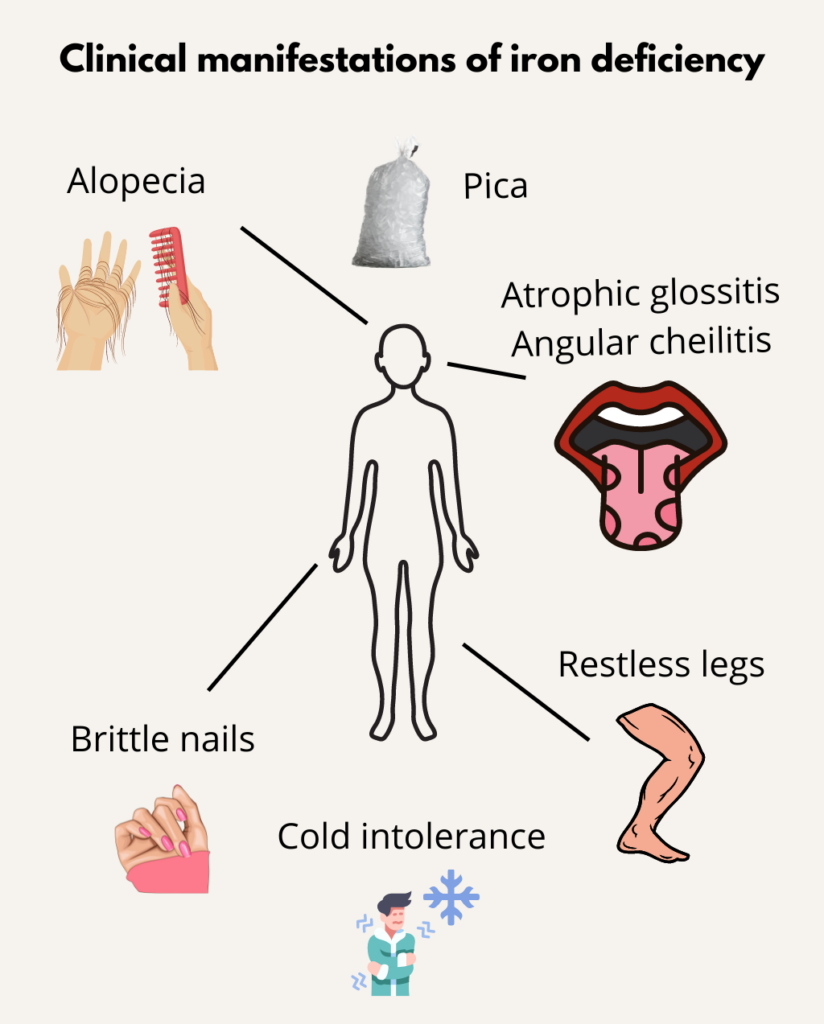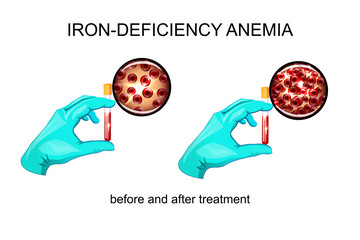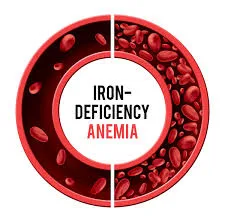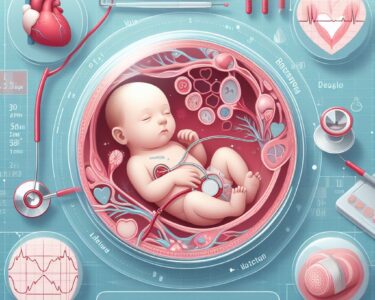Exploring Iron Deficiency Anemia: Causes, Diagnosis, and Treatment

Iron deficiency anemia is a prevalent yet often underestimated condition that can have a significant impact on one’s overall well-being. In this comprehensive guide, we’ll delve into the causes, diagnosis, and treatment options for iron deficiency anemia. Whether you’re experiencing symptoms or seeking to enhance your knowledge, this article provides valuable insights into managing this condition effectively.
read more about Technology in Modern Healthcare – Advancements Shaping the Industry”
Understanding Iron Deficiency Anemia
Iron deficiency anemia occurs when there is a shortage of iron in the body, leading to a reduced ability of red blood cells to carry oxygen to tissues and organs. This deficiency can result from various factors, each of which plays a crucial role in the development of the condition.

read more about The Role of Nutrition in Preventing Chronic Diseases
Causes of Iron Deficiency Anemia
Several factors contribute to iron deficiency anemia, including:
- Inadequate Dietary Intake: Not consuming enough iron-rich foods, such as leafy greens, lean meats, and beans, can lead to a deficiency over time.
- Blood Loss: Chronic blood loss, often due to heavy menstrual periods or gastrointestinal bleeding, can deplete the body’s iron stores.
- Poor Iron Absorption: Certain medical conditions, like celiac disease and inflammatory bowel disease, can hinder the absorption of iron from the diet.
- Increased Iron Needs: Infants, adolescents, and pregnant individuals have higher iron requirements and are more susceptible to developing anemia if those needs are not met.
Diagnosing Iron Deficiency Anemia
Early diagnosis is essential for effective management of iron deficiency anemia. A healthcare professional may conduct the following tests:
- Complete Blood Count (CBC): This test measures the levels of red blood cells, hemoglobin, and hematocrit. Low levels can indicate anemia.
- Serum Ferritin Test: Ferritin is a protein that stores iron. A low ferritin level suggests insufficient iron stores.
- Iron and Total Iron-Binding Capacity (TIBC) Tests: These tests evaluate iron levels and the body’s capacity to bind and transport iron.
Treating Iron Deficiency Anemia

Treatment for iron deficiency anemia typically involves addressing the underlying cause and replenishing iron levels. Here are some approaches:
- Dietary Changes: Increasing consumption of iron-rich foods like spinach, lentils, and lean meats can help restore iron levels.
- Supplements: Iron supplements prescribed by a healthcare provider can rapidly boost iron levels. However, they should be taken as directed to prevent side effects.
- Treating Underlying Conditions: Managing conditions that hinder iron absorption, such as celiac disease, can contribute to resolving the anemia.
- Intravenous Iron Therapy: In severe cases or when oral supplements are not effective, intravenous iron therapy may be recommended.
Conclusion
Iron deficiency anemia is a condition that should not be overlooked. With proper awareness and early intervention, its impact can be minimized. By understanding the causes, recognizing the symptoms, and exploring treatment options, individuals can take proactive steps toward managing their health and well-being.
FAQs
- Q: Can iron deficiency anemia affect children? A: Yes, children with inadequate iron intake or absorption can develop iron deficiency anemia.
- Q: Are there any long-term complications of untreated iron deficiency anemia? A: Untreated iron deficiency anemia can lead to fatigue, weakened immune function, and impaired cognitive performance.
- Q: Is iron deficiency anemia preventable? A: Yes, maintaining a balanced diet rich in iron-containing foods and addressing any underlying conditions can help prevent iron deficiency anemia.
- Q: Can iron supplements cause side effects? A: Yes, iron supplements can lead to side effects such as constipation and nausea. Consult a healthcare professional before starting any supplementation.
- Q: Is iron deficiency anemia more common in certain populations? A: Iron deficiency anemia is more prevalent in women of childbearing age, pregnant individuals, and those with gastrointestinal conditions that affect iron absorption.









 Viesearch - The Human-curated Search Engine
Viesearch - The Human-curated Search Engine
